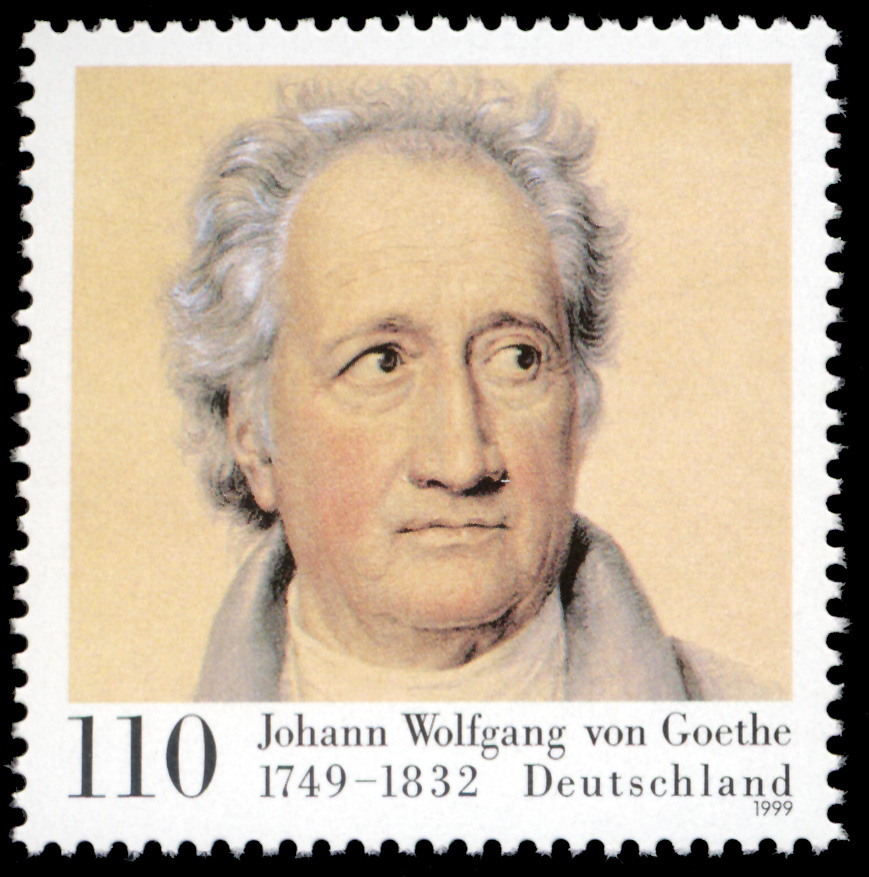|
Listen to or download this article:
|

“One ought every day at least, to hear a little song, read a good poem, see a fine picture, and, if it were possible, to speak a few reasonable words.” – Johann Wolfgang von Goethe
A writer must be bold. To start from a blank screen, transfer your imagination into a story with characters you know and experiences you’ve lived, then send it out into the world for everyone to judge—well, it takes guts.

Johann Wolfgang von Goethe (August 28, 1749 – March 22, 1832), the influential German writer and polymath, understood this truth just as much as writers continue to experience it today. It’s the tenacity and courage to pursue our goals regardless of our fears, and it’s something he exhibited in his own life.

Examining the Human Experience
Born in Frankfurt, Germany, Johann Wolfgang von Goethe is widely regarded as one of the most influential literary figures in Western history. With interests spanning literature, philosophy, and science, he has come to be known as a true Renaissance man, but he was not only known for his artistic talents. His curious mind led him on quests to understand nature in all its forms; physical, intellectual, and emotional.
Best known for his dramatic masterpiece, Faust, Goethe’s writing examines themes of ambition, desire, knowledge, and redemption. His characters search for meaning beyond material success and find themselves navigating the eternal struggle between good and evil.
Struggles that remain with us to this day.
Goethe also influenced the Romantic movement in literature with poetry and prose and influenced the existential and psychological literature to come. The Sorrows of Young Werther, the story of a young man’s extreme response to unrequited love, drew such a response that it led to a wave of emotional identification within the reading public and lit the match of a new literary revolution focus on emotionally impactful narratives.

Goethe in the Roman Campagna, artist Johann Heinrich Wilhelm Tischbein Kopie, oil
The Genius of Goethe
Along with his successful writing career, Goethe was also a scientist, a statesman, an artist, and a philosopher. His interdisciplinary approach, thriving curiosity, and appreciation for the interconnectedness of knowledge is our lesson from Goethe. In our busy, fragmented world these important aspects of being human can often be undervalued. But as writers, we know how important they are when creating a world.
Living Through History’s Transformation
Goethe’s long life (1749-1832) placed him at the center of some of history’s most transformative periods—the very eras that today’s late historical fiction brings to life. He witnessed the French Revolution’s upheaval, lived through the Napoleonic Wars that reshaped Europe, and observed the early stirrings of industrialization that would transform society. The social, political, and cultural changes he experienced firsthand are precisely the subjects that modern historical fiction authors spend years researching to recreate authentically on the page.
As we celebrate his birthday on August 28th, and again at the CIBA Awards during the Chanticleer Authors Conference (CAC26) in April 2026, let’s also honor the enduring power of literature to shape our understanding of the world and ourselves and challenge ourselves to think more deeply, feel more passionately, and live with greater awareness.

Stamp from Deutsche Post AG from 1999, issued for the 250th birthday of Johann Wolfgang von Goethe
Final Call: Celebrate Your Late Historical Novel!
Time is running out! Enter the Goethe Division of the CIBA Awards and get the recognition your work deserves!
Submissions close August 31st, just days away!
We’re excited about all the exceptional historical fiction we receive every year for both the CIBAs and for our Editorial Reviews. The Chanticleer International Book Awards offers an incredible $30,000 in cash, prizes, and promotion across all divisions!
Don’t wait—bring your historical vision to life before the deadline passes!
The Goethe Awards recognize the extraordinary research and storytelling skill required to bring recent history to authentic life. Whether you’ve spent years researching Victorian social customs, Georgian political movements, or early 20th-century cultural changes, these awards celebrate both your historical scholarship and narrative artistry.
Historical fiction helps us understand how we became who we are today. Whether your story explores the drawing rooms of Regency England, the immigrant experience in turn-of-the-century America, or the social transformations of the early 1900s, the Goethe Awards celebrate the authors who make history feel immediate and alive.

CIBA’s Goethe Division for Late Historical Fiction
To honor this great literary figure we’ve created the Goethe Division for Late Historical Fiction in the Chanticleer International Book Awards (CIBA). This category is best for books with themes of
- Regency in 1700s & 1800s
- Turn of the Century
- 20th Century
- World/International History Post 1750s
- U.S. History
- 1830s – 1900s Victorian & Edwardian Eras
And each work submitted will be judged on the following criteria:
- Is the story compelling?
- Professionalism of editing and formatting
- Characterization
- Continuity of storyline
- Satisfying ending (not necessarily “happy”)
- Intriguing opening
- Uniqueness of story
- Writing craft
- World construct
- Premise

You know you want it…









Leave A Comment